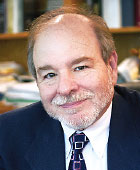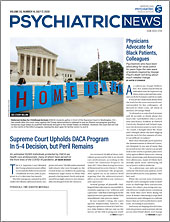There is an old saying among psychotherapists that “all psychopathology is loss; all psychotherapy is mourning.” Though oversimplified, this aphorism remains quite useful. Many of our patients, regardless of diagnosis and regardless of whether they are in formal psychotherapy, need help when mourning processes are blocked. To explore this more fully, we need to understand the impact of loss in three categories: bereavement, grief, and mourning.
When we lose a loved one, we are in a state of bereavement. The biopsychological process that follows bereavement is grief, with associated sadness, crying, sighing, yearning, and intrusive memories. Grieving takes time to subside, but never entirely goes away. One part of successful grieving is mourning, an intrapsychic as well as an interpersonal and social process that adds a social dimension to the biopsychological process of grief; hence, the full response to loss is biopsychosocial.
Social rituals, like funerals or other sharing of the experience of loss, play an important role in mourning, as can psychotherapy when grief becomes complicated and persistent because of conflicted and ambivalent feelings about the one lost; when the biopsychological process of grief does not find its way to the interpersonal/social process of mourning; or when access to emotions is suppressed by personality traits, defenses, automatic thoughts, attachment style, or crisis-based demands to move on without time for mourning.
When psychiatrists treat patients with blocked mourning, regardless of diagnosis, symptoms, and prescription of appropriate pharmacotherapy, there is important work to do in freeing up blocked mourning processes in the service of resilience. For example, in addition to prescribing and monitoring a mood stabilizer for patients with onset of bipolar disorder, part of our work is creating a safe space to face losses associated with the onset of the disorder in the service of helping our patients mourn them and move on. Reshaping one’s identity to accept the need for medication, the presence of a potentially chronic and disabling condition, the potential need to surrender or adjust fantasies about the future, and coming to grips with side effects of our imperfect drugs and with the self-stigma of viewing oneself as damaged are often important components of work with patients with bipolar and other disorders as they struggle to adapt to losses and search for their own pathway to recovery and resilience. This is where “all psychopathology is loss; all psychotherapy is mourning” is such a useful notion.
The COVID-19 pandemic is especially noteworthy for causing all kinds of loss—deaths occurring in large numbers and in successive waves; families unable to say goodbye to dying loved ones; widespread economic loss, including tens of millions of newly unemployed struggling to connect to a social safety net unprepared to respond to such numbers; loss of access to important peer relationships and personal freedom, with increased isolation and loneliness related to sheltering in place and similar restrictions in social and community life; a pervasive sense of helplessness; virtual or socially distant masked relationships substituting for authentic human closeness; interrupted education with thwarted access to rituals like graduations or even end-of-year farewells; and an uncertain outlook for previously solid future plans.
These losses and the isolation associated with the COVID-19 pandemic are leading to increased substance use, suicide, domestic abuse, and social unrest, while many adults and children report increased symptoms of anxiety and depression. Such losses exacerbate preexisting mental disorders and contribute to new ones.
When mourning is significantly blocked across a population, there is a range of potential outcomes. Many individuals do well, finding a way to move on without mourning or to mourn well enough with the opportunities currently available. However, many others are at risk of developing complicated grief, to become perennial mourners, or to develop new mental disorders. For these individuals, psychotherapy plays precisely the important role identified earlier in this piece—that is, regardless of the manifest diagnosis faced by such individuals (whether it be substance use, mood, anxiety, psychotic, or other disorders), a central underlying etiological driver will be loss associated with blocked mourning, and psychotherapy offers an opportunity to help unblock the mourning process.
Careful attention to patients’ narratives in such instances often reveals that, though they have grieved, they have not fully mourned. While grief subsides over time, the work of mourning that helps us move on resiliently without perennial mourning generally requires an interpersonal and social dimension. Individual, group, and family psychotherapy can offer that interpersonal opportunity, creating a safe therapeutic relationship within which to carefully approach the pain of loss and to share the burden in ways that unblock blocked mourning processes that contribute to impairment. In a world changed by COVID-19, psychotherapy remains an essential skill of psychiatrists. ■

